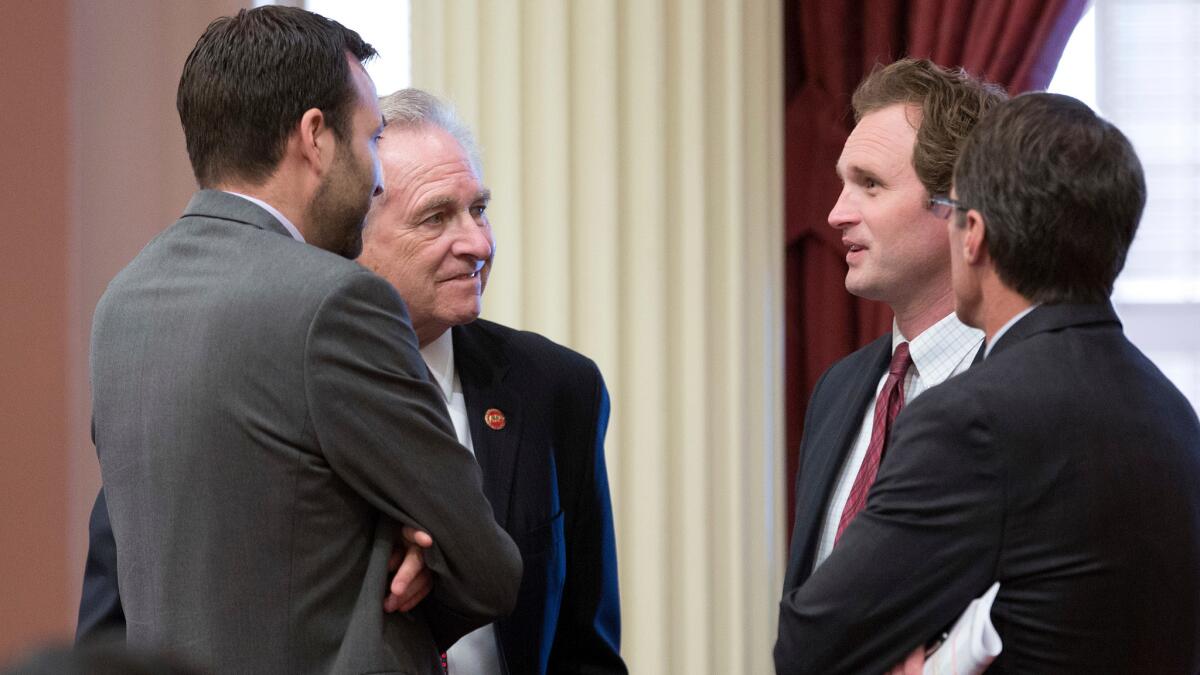Editorial: Proposition 54 is a modest proposal to make lawmaking more transparent

The proponents of Proposition 54, the California Legislative Transparency Act, would have you believe that all the ills of state politics — the backroom deals, the influence of special interests and the votes held on bills legislators haven’t read — will be fixed with this one simple measure on the Nov. 8 ballot. They won’t.
But the proposal would make it easier for the public to keep track of what’s going on in Sacramento, and that alone makes Proposition 54 worth supporting.
The measure does three main things. First, it would require that every bill be in print and available online for at least 72 hours before it came up for a vote in the Senate or Assembly (unless the governor declares a state of emergency). It’s quixotic to think that lawmakers would actually page through the enormous stack of proposals that come up for votes late in the session, but Proposition 54 would at least give the public three days to digest a proposed law, while stopping the Legislature from holding votes on measures its members could not possibly have read.
Second, it would guarantee the right to record public legislative proceedings and use the video and audio for any purpose. Third, and perhaps most important to those who want to keep an eye on lawmakers but who aren’t in Sacramento, is the requirement that all public meetings be captured on video, with the recordings posted online within 24 hours and retained there for 20 years. Right now, many but not all legislative meetings are recorded, and when and for how long they are posted varies.
Opponents of the bill, which consist mainly of the California Democratic Party and the California Labor Federation, say it is a power grab by billionaire Charles Munger Jr., a conservative activist who is backing the proposition, and would give special interests more power.
We don’t see how more transparency would give special interests more power than they have now. Nor do a bevy of good government groups supporting the bill along with Munger, chambers of commerce and taxpayers associations.
It’s true, however, that the proposition won’t end the political game-playing or limit the influence of special interests on legislation. When there’s big money behind a bill, whether it is in print for 72 hours or 72 seconds makes little difference. Nor will it end the practice of leaders cutting deals behind the scenes at the last minute. It would merely push the “last minute” up, forcing deals to be consummated 72 hours before the end of a session.
Also, it’s disappointing the authors didn’t take an opportunity to be more environmentally forward-thinking. For example, the proposition requires that all changes to bills be made in print and online versions. But, honestly, who reads a bill in paper form anymore? The Legislature already has a paper problem, and this won’t help.
Nevertheless, Proposition 54 would make the Legislature a bit more open, accessible and accountable to the public. It deserves a “yes” vote.
Follow the Opinion section on Twitter @latimesopinion and Facebook
More to Read
A cure for the common opinion
Get thought-provoking perspectives with our weekly newsletter.
You may occasionally receive promotional content from the Los Angeles Times.










